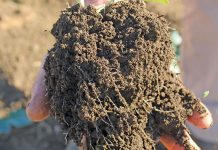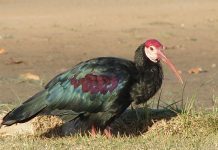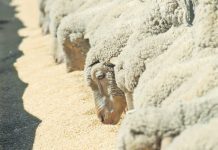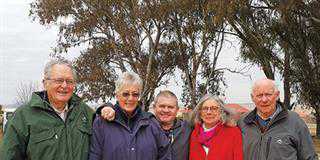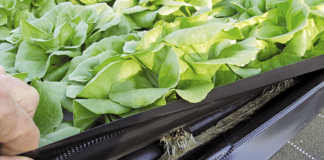For years, Professor Mark Laing was told it was impossible to breed cassava for resistance to cassava maize virus (CMV), a devastating disease that strikes this African food staple. But the chair of plant pathology at the University of KwaZulu-Natal resolutely continued his research, certain that a breakthrough was possible.
Recently, PhD students who had passed through Prof Laing’s plant breeding initiative at the university’s African Centre for Crop Improvement (ACCI), proved him right. Working in Kenya, Tanzania and Zambia, they succeeded in breeding totally CMV-resistant varieties within just three years, using conventional breeding techniques. They also developed varieties resistant to the cassava brown streak virus, also a significant threat.
On top of these successes, they have bred varieties that reach a peak yield within seven months, a significant improvement on the 18 months it normally takes East African cassava landrace varieties (ancient varieties developed largely by natural processes) to reach maturity. This means that growers can double their overall yield, making a huge impact on food security and income.
“It doesn’t require genetically modified organism (GMO) technology to solve all crop problems,” explains Prof Laing. “Besides, the cost of conventional breeding is 5% to 10% of that of developing GMOs, and seed can be released to the market in probably half the time.” The ACCI was founded in 2002 with the specific aim of using traditional plant breeding methods to develop new crop varieties for African countries. Each year, the centre’s plant breeders have supervised up to 10 PhD students from various countries on the continent.

ACCI director Prof Mark Laing (left) receives an Agra Forum award from Agra chairperson Kofi Annan for building capacity to address food security. Courtesy of AGRA
The students develop their proposals, study advanced plant breeding and complete a mini-project to test the techniques they will apply in their research. They then take the technology back home, where they continue their research, normally at a government research station. ACCI students are currently working on 17 crops, including pearl and finger millet, sorghum, Asian and African rice, cassava, cowpea, sweet potato and teff, each a staple food in its respective country.
“It’s crucial that each new variety is bred in the environment in which it will be grown,” explains Prof Laing. “Our principle is that every crop needs its own plant breeder in each country’s major agro-ecological zones. In Kenya, for example, at least four maize breeders are needed for the more than four distinct agro-ecological zones where maize is grown.”
Breakthroughs
“The progress made by the ACCI students is staggering,” enthuses Prof Laing. “We’re using classical plant breeding, but very efficiently – converting low-yielding landrace varieties to high-yielding ones. For example, we increased the yield of finger millet in Kenya from 600kg/ha to 3t/ha after three years of conventional plant breeding.” Another ACCI success story involves dry beans, an important protein crop across Africa. Traditionally, the beans face a major threat from weevils, which eat about half the crop in storage each year.
Recently, Malawian scientist Dr Geoffrey Kananji identified two bean varieties that were completely resistant to the pest. “Dr Kananji is now in a position to literally double the amount of beans available for eating, which will make a massive impact on food security and protein intake,” says Prof Laing. In South Africa, student Alina Muedi is breeding high-yielding, drought-resistant sorghum varieties, with trials already under way in KwaZulu-Natal and Limpopo.
“We hope that open pollinated sorghum varieties will be available in five years,” says Prof Laing. “Alina is breeding medium-height varieties. The short hybrids from seed companies are fine for commercial farmers who use mechanical harvesters, but small-scale farmers want longer stalks that they can use for animal feed.” Breeding crop varieties to suit the needs of African small- scale farmers is a key aspect of the ACCI programme. Every student has to conduct a full survey of the crop traits that farmers are looking for before embarking on a project.
“After analysing the responses, students then breed for these traits,” explains Prof Laing. “In Mali, for example, an international agency was breeding a dwarf variety of West African rice, but ACCI student Dr Andrew Efisue found that the women harvesters didn’t like it. They prefer rice that grows to chest height so they can harvest without having to bend down.” Students may take participation even further by asking farmers to choose optimal varieties in the breeding programme.
“Cassava plant breeders conduct taste testing in the field, where they cook cassava next to each variety,“ says Prof Laing.
“The farmers tell the breeders which variety they like best – analysing taste, colour, shape and quality. They then readily adopt these new varieties.”
Accolades
A total of 42 ACCI students from 14 countries have graduated with doctorates, and 38 more are in training. ACCI students have registered 22 new crop varieties and 66 registrations are pending. The programme has been so successful that in September the ACCI and Prof Laing received an award of recognition from Dr Kofi Annan, chairperson of Alliance for a Green Revolution for Africa (Agra). The organisation is sponsored by the Bill and Melinda Gates Foundation and the Rockefeller Foundation.
Agra funds the initial scholarships to the students, and then continues funding their research after graduation so that they can continue their breeding programmes to the point of releasing new crop varieties. Cuttings of superior cassava varieties have already been released in Kenya, Tanzania and Zambia after two years of field testing. “It’s crucial that students continue to receive financial support until the varieties are released,” says Prof Laing. “Agra has taken it a step further by setting up a network of small seed companies to license and produce seed of the new varieties and sell it to farmers. This is important, because the number of farmers who adopt the new varieties is our measure of success.”
Contact Mark Laing on 033 260 5524 or email [email protected]

